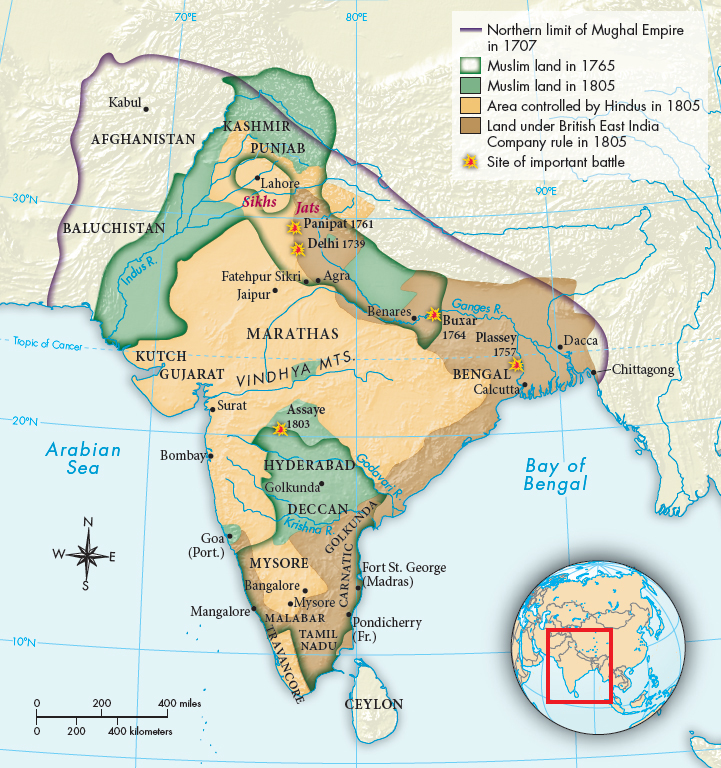European Rivalry for Trade in the Indian Ocean
Shortly before Babur’s invasion of India, the Portuguese had opened the subcontinent to Portuguese trade. In 1510 they established the port of Goa on the west coast of India as their headquarters and through an aggressive policy took control of Muslim shipping in the Indian Ocean and Arabian Sea, charging high fees to let ships through. As a result, they controlled the spice trade over the Indian Ocean for almost a century.

In 1602 the Dutch formed the Dutch East India Company with the stated goal of wresting the enormously lucrative spice trade from the Portuguese. In 1685 they supplanted the Portuguese in Ceylon (Sri Lanka). The scent of fabulous profits also attracted the English. With a charter signed by Queen Elizabeth, eighty London merchants organized the British East India Company. In 1619 Emperor Jahangir granted a British mission important commercial concessions. Soon, by offering gifts, medical services, and bribes to Indian rulers, the British East India Company was able to set up twenty-
The British called their trading posts factory-
Factory-